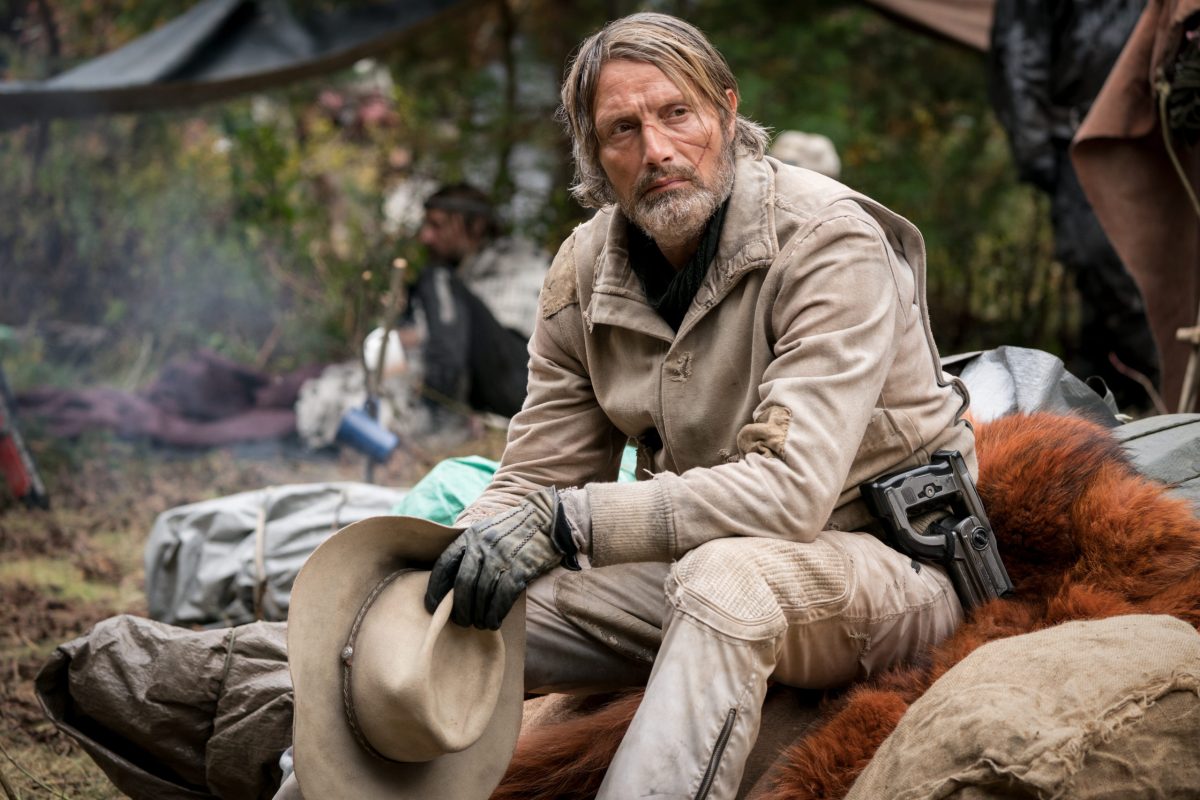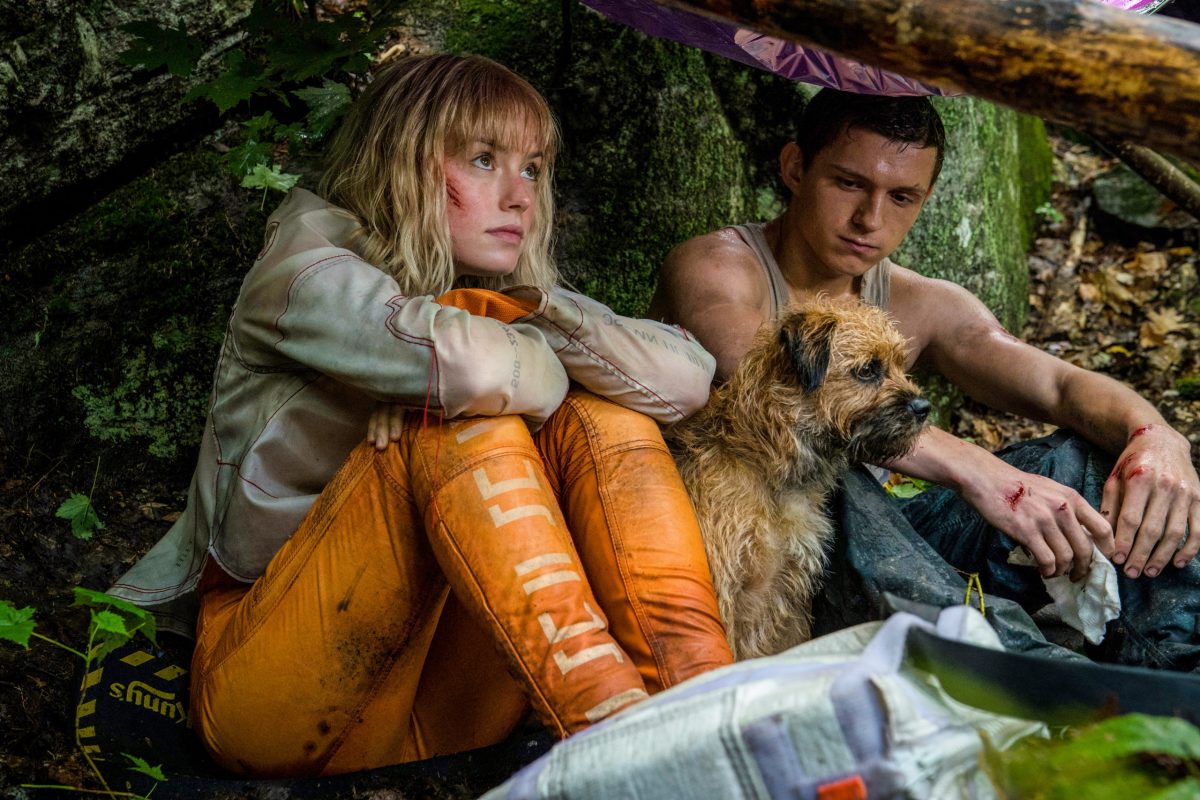The dystopian young adult novel. It has, without a doubt, become a cliche in films as studios attempt to chase the success of Lionsgate’s The Hunger Games from nearly a decade ago. That success hasn’t really come to any great extent with most attempts meeting with a collective shrug from audiences and YA franchises petering out after one movie or trudging onward to labored conclusions more out of desperation than success. Lionsgate itself did the latter with the Divergent series, which steadily lost both audience and quality as the films released.
However, the studio is once again back with another stab at catching YA fire (pun intended) with Chaos Walking. The Chaos Walking trilogy of books, which are critically praised, fit nicely into the standard YA dystopian future sub-genre. Take one or two teens, throw them into a world that’s falling apart, add a unique twist – in this case, all the thoughts of males can be heard -, mix with social commentary, and release it all onto a heavily forested world. What might give Chaos Walking a bit more juice, however, is that it not only tapped two of Hollywood’s biggest names in Tom Holland (Spider-Man: Homecoming) and Daisy Ridley (Star Wars Episode VII: The Force Awakens) but also managed to snare Doug Liman (The Bourne Identity) to direct.
Did Lionsgate discover a new breakout YA success with Chaos Walking or is it just another bunch of teenagers running around in a low-budget mess?
Chaos Walking
Director: Doug Liman
Rated: PG-13
Release Date: March 5, 2021 (Theatrical)
Chaos Walking, based on the trilogy’s first novel The Knife of Never Letting Go, takes place sometime in the future when humanity has just started to colonize other planets, specifically “New World.” However, what they didn’t know when the first colonists arrived is that the men on New World are affected by “the noise.” The noise makes all their thoughts visible, either verbally or sometimes visually. Some men can control their noise while others have more difficulty doing so. Some can even manifest images using the noise.
We find Todd (Tom Holland), a teen born on New World, living in what he believes is the only settlement on the entire planet which just happens to be entirely populated by men after all the women were supposedly killed by the planet’s indigenous life. However, when a new ship of settlers arrives its initial landing team crashes, leaving only Viola (Daisy Ridley) alive and unable to communicate with the colony ship. Tom and Viola must escape the Mayor of the colony (Mads Mikkelsen) as he desperately tries to stop Viola from contacting the ship so that he can take over the rest of the colonies on the planet.

The premise of the film is pretty much getting from point A to point B but the subtext is where the movie really plays out. As Todd and Viola attempt their escape, dark secrets about the town and what happened to all the women there begin to unfold. It’s here where the movie both succeeds and fails. There’s a fantastic narrative playing here about gender roles, our inner thoughts, and how we function as a society and it interplays into the more generic YA sci-fi premise wonderfully. When the film is both delving into these ideas and trucking along through its chase it plays really well and delivers more than most other films in the YA genre.
A lot of that is thanks to director Dough Liman’s eye for both visual action and narrative structure. He makes a very straightforward plot involving two teenagers walking through the woods seem far more complex and interesting. Where most YA films like this start to all look the same, Liman has enough visual style to deliver a film that feels like it is something a bit more unique. Nothing here ever truly breaks out of the YA mold but it’s enough to make the film interesting and fun to watch. Liman’s flair turns Chaos Walking into a film that’s more than a bunch of CGI teens jumping around. In fact, the film is happily devoid of a lot of CGI content (aside from the visual representation of noise around actor’s heads) for large chunks of its run, making the world feel far more real and engaging.

When the movie is focused on Todd and Viola it plays really well, especially thanks to the charm of its two stars (even though both are probably too old to be playing these roles). Todd’s character is interesting since he can’t control his “noise” all that well and his earnestness is heartening. The film balances the sticky relationship between Todd and Viola with grace as the inner thoughts of a teenage boy meeting a girl for the first time aren’t always PG-13 but it does feel authentic. Still, the YA audience does mean that some of the hairy subjects in the film seem to get left behind.
The problem is the villains, who are never developed enough. The mystery behind what happened to the women of the colony is something obviously huge but the film is both not adult enough and not long enough to dive into the trauma of this event. It sadly can’t handle the weightier aspects, leaning into its pacing and on-the-run storyline to move forward instead of unpacking the horrors of its premise. The plight of all the women in the colony is handled just a bit too hands-off, with the true terror of what occurred never fully unpacked. This is especially true for Mikkelsen’s character, who led the men in the atrocity but is never given the time to really address his hatred as he basically just chases after our heroes. The film is content to dance around the Mayor’s actions with only the final confrontation truly addressing his sins, which is a shame since Mikkelsen could do so much more with the role.
Chaos Walking is definitely one of the better YA adaptations to come along in a while. By landing a quality director and two engaging leads, the film delivers on its quick pace and story but simply stumbles over its bigger issues. It’s fantastic to have a YA film diving into deeper subjects on gender, privacy, and other social topics but I wish it had been able to unpack it all a bit better. There are big, dark, and challenging questions here that just get a bit too glossed over, and putting them into the YA space is a great way to discuss them in less confrontational ways. If the other two books do get adapted I look forward to them unpacking these challenging subjects a bit more.

